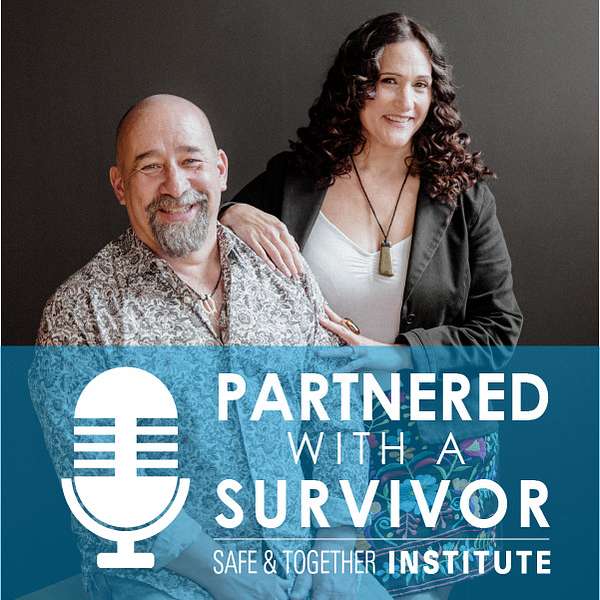
Partnered with a Survivor: David Mandel and Ruth Reymundo Mandel
This podcast is a series of conversations.
What started as a series of intimate conversations between Ruth and David that ranged from personal to professional experiences around violence, relationships, abuse, and system and professional responses which harm, not help, has now become a global conversation about systems and culture change. In many episodes, David and Ruth are joined by a global leader in different areas like child safety, men and masculinity, and, of course, partnering with survivors. Each episode is a deep dive into complex topics like how systems fail domestic abuse survivors and their children, societal views of masculinity and violence, and how intersectionalities such as cultural beliefs, religious beliefs, and unique vulnerabilities impact how we respond to abuse and violence. These far-ranging discussions offer an insider look into how we navigate the world together as professionals, as parents, and as partners. During these podcasts, David and Ruth challenge the notions which keep all of us from moving forward collectively as systems, as cultures, and as families into safety, nurturance, and healing.
We hope you join us.
Have an idea for a podcast? Tell about it here: https://share.hsforms.com/1l329DGB1TH6AFndCFfB7aA3a1w1
Partnered with a Survivor: David Mandel and Ruth Reymundo Mandel
Season 2 Episode 21: Minisode Series on Worker Safety & Well-Being: When Workers Are Targeted by the Perpetrator
In this second installment of the multi-part minisode series on worker safety and well-being, Ruth and David explore the important topic of workers being targeted by domestic violence perpetrators. In less than 15 minutes , David and Ruth discuss different ways workers are targeted, including:
- Manipulation, intimidation, and bullying
- Threats of or actual lawsuits and complaints lodged with managers, professional boards, or courts
- Implied or real threats against family members
- Stalking (online or in real life)
Ruth and David also discuss how misogyny, racism, or other forms of discrimination can be factors in the targeting of workers.
David and Ruth finish the brief episode with specific suggestions about basic safety and support strategies that agencies can put in place to respond to the behaviors of perpetrators, including:
- Explicitly widen out the concept of worker safety to include intimidation and manipulation, not just explicit threats or acts of violence.
- Make this wider definition of worker safety a regular part of preventative (not reactive) supervision.
- Ensure that staff that handle client complaint or review boards are educated around coercive control and pattern-based assessments.
- Performance reviews and human resources procedures need to be consider the impact of threats and intimidation on a worker’s performance.
Check out David Mandel's new book Stop Blaming Mothers and Ignoring Fathers: How to Transform the Way We Keep Children Safe from Domestic Violence.
Visit the Safe & Together Institute website.
Start taking Safe & Together Institute courses.
Check out Safe & Together Institute upcoming events.